
 Flash News
Flash News
Rama targets Shkodra prosecutor again: Gjeli wrote philosophical essay with innocence of illegal construction
Wanted for theft, 26-year-old arrested in Durrës
Released on bail, Salianji appears before the Probation Service
Threatened with a report by Rama, Shkodra prosecutor writes to KLP: React to political attacks
Korça/ 40-year-old man jumps from fifth floor balcony, in critical condition

Iran has been holding the world's breath since it vowed to attack Israel more than two weeks ago - a decision experts believe could plunge the entire region into war.
The attack, which the Islamic Republic has pledged, is revenge for the killing of Hamas political leader Ismail Haniyeh on July 31. Hamas, the Palestinian group that rules Gaza, has been declared a terrorist organization by the United States and the European Union.
The supreme leader of Iran, Ayatollah Ali Khamenei, after Haniyeh's murder, said that Iran is obliged to take revenge for its "guest". The whole world has been waiting for a "swift" Iranian attack in the past two weeks, and this anticipation has often resulted in hysteria on social media, with predictions that an attack by Iran and its allies, including the Lebanese militant group, Hezbollah, it could happen within hours.
"I think they enjoy this period, seeing Israel waiting, and paying a huge economic and psychological price," said Raz Zimmt, a senior researcher at the Institute for National Security Studies in Tel Aviv.
However, waiting is a double-edged sword that also harms Iran and its allies.
"The negative impact on Israel, be it the stress that is caused, the military mobilization, but also the economic consequences, are not limited only to Israel, but also affect Iran and Lebanon," warned Michael Horowitz, head of intelligence at the Le Beck International Consulting Center. based in Bahrain.
Analysts have said that the idea that Iran is delaying retaliation because it is enjoying the psychological effect is more of an excuse than a real strategy. They agreed that intense internal debates, the complexity of coordinating with cooperative groups, and assessing the risks associated with the attack, are some of the factors that have contributed to Iran's reluctance.
Zimmt has said that Iran is facing a "huge dilemma" because while Khamenei and Iran's Islamic Revolutionary Guard Corps want to contain Israel, there are voices in Iran that are concerned that a large-scale attack could involve Iran in a war with Israel, and even with the United States.
If a decision has been made on how to respond to Haniyeh's murder, coordination with Hezbollah and other members of the so-called Axis of Resistance – Tehran's network of regional groups – is a time-consuming process.
Another factor influencing Iran's decision-making is the increased presence of the US military in the region, even more so than in April, when Iran carried out an unprecedented missile attack against Israel.
"We are seeing greater mobilization [by the US] than in April, which is probably related to the level of threat, as Iran could carry out a greater attack than it did in April," Horowitz said.
"The message that the US is spreading through the positioning of offensive and defensive weapons may be exactly the kind of message that is needed at this stage."
Tehran has ignored Western calls for restraint, and has insisted it has a legitimate right to respond after Haniyeh's killing on Iranian soil. However, repeated phone calls made to Iranian President Masoud Pezeshkian and Iran's acting Foreign Minister Ali Baqeri-Khani have raised speculation that diplomatic efforts helped delay the attack.
"I'm skeptical that diplomacy is enough to completely change Iran's calculations," Horowitz said.
"Iran will do what it believes is in its best interest, regardless of the appeals made to it." Iran, on the other hand, has suggested that another type of diplomacy could "postpone" the promised attack: a permanent ceasefire in Gaza, in the war between Israel and Hamas.
Farzan Sabet, a senior researcher at the Geneva Institute, has speculated that Iran may be looking for ways to justify softening the tone, and an eventual cease-fire in Gaza could be the "diplomatic victory" it needs. Zimmt has said that the cease-fire in Gaza may not be so important for Iran, but it offers Tehran "a justification to legitimize this delay, both domestically and abroad".
He has said that a cease-fire could affect the reduction of Iran's attack rate, or even the selection of some other method for retaliation, which does not mean a direct attack on Israel. It remains a mystery when and how Iran will respond, but as things stand now, Tehran does not seem to have any good options in front of it.
"Decision-makers in Tehran may be looking for a golden key," said Sabet.
According to him, Iran's desire is to carry out a retaliatory attack, not so weak as not to have even a symbolic effect, but also not so powerful as to cause an uncontrolled escalation, leading to a major war. Therefore, Tehran will either be forced to launch a weak attack, or one that risks a major war.
"Both options carry great risks," Horowitz said, "both for predictions about Iran's power in the region, and for the possibility of Iran striking back in any conflict."/ REL
Latest news

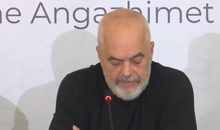

Amid the Alps in Theth, the law punishes even those who try to respect it
2025-07-11 10:14:16
Wanted for theft, 26-year-old arrested in Durrës
2025-07-11 10:03:29
After the dismissals, Rama gathers the mayors in Durrës
2025-07-11 09:42:29
Released on bail, Salianji appears before the Probation Service
2025-07-11 09:34:28

Haxhi Qamil Rama and the directors of the Municipalities!
2025-07-11 09:21:35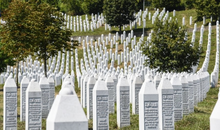
30 years since the Srebrenica massacre in Bosnia and Herzegovina
2025-07-11 09:10:52

From rhetoric to brandy, POLITICO: 9 things Nigel Farage can do in Albania
2025-07-11 08:53:35
Trump announces 35% tariffs on Canadian goods
2025-07-11 08:39:29
Foreign exchange, how much foreign currencies are sold and bought today
2025-07-11 08:24:25

Horoscope, what do the stars have in store for you today?
2025-07-11 07:59:39
Sun and high temperatures, weather forecast
2025-07-11 07:41:09
Morning Post/ In 2 lines: What mattered yesterday in Albania
2025-07-11 07:20:14
Zhupa: In Theth, some Austrian strategic investors want the empty area
2025-07-10 22:57:08
Malltezi: SPAK admits, we are in a process that began with Balla's false report
2025-07-10 22:34:16

Si të çliroheni nga bllokimet emocionale me anë të ushtrimeve
2025-07-10 21:57:24

Lala: Veliaj wanted to return as mayor
2025-07-10 21:40:46

VIDEO/ Brawl in Bolivian parliament, deputies physically clash
2025-07-10 21:20:30


Albania experienced one of the longest heat waves of the last decade
2025-07-10 21:01:09

The Government approves new procedures for declaring residence in e-Albania
2025-07-10 20:39:32

Koka: Northerners will not forget Edi Rama's racist operation in Theth
2025-07-10 20:18:24
The 3 zodiac signs that will be most affected by the 'Full Moon' of July 10
2025-07-10 20:04:49
New director of the National Center of Cinematography appointed
2025-07-10 19:51:12
Korça/ 40-year-old man jumps from fifth floor balcony, in critical condition
2025-07-10 19:40:19
'Tired Woman'/ The Syndrome That Affects Thousands of Women Every Day
2025-07-10 19:34:02
Jane Birkin's original Hermès bag sells for $10 million
2025-07-10 19:26:22

Britain-Ukraine agreement signed for 5,000 Thales missiles
2025-07-10 19:00:25
Fire in Zvërnec, flames endanger two hotels
2025-07-10 18:57:19
Croatia restores compulsory military service
2025-07-10 18:39:01
Spahia: The great truth of the strong accusation of the residents of Theth
2025-07-10 18:35:07


The Supreme Court left him in prison, Meta addresses the 'Constitution'
2025-07-10 17:57:21
New punishment with 'new' regulations
2025-07-10 17:54:46
EU translator fired over fears for Zelenskyy's safety
2025-07-10 17:45:37
'You are a policeman, but not God, take my soul', protest for Agon Zejnullahu
2025-07-10 17:41:21


Video/ Rama repeats the scenario, kneels before Meloni again
2025-07-10 16:56:31
He set fire to a plot of olive trees, 50-year-old man arrested in Shijak
2025-07-10 16:46:19

Rubio: US and Russia have exchanged new ideas for Ukraine peace talks
2025-07-10 16:36:20
Death of 27-year-old, Lipjan Police Commander Resigns
2025-07-10 16:21:28
Video/ An apartment burns in Tirana near the New Bazaar
2025-07-10 16:09:36


Jensila lights up the internet with her birthday greetings to Ledri
2025-07-10 15:42:08
They're full of pesticides! List of 12 products we need to be careful of
2025-07-10 15:31:04

Worker falls from scaffolding in Shëngjin, urgently sent to Trauma
2025-07-10 15:11:03
Malltezi: Within one day they seized my accounts, properties and shares
2025-07-10 15:01:23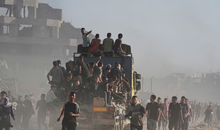
EU: Israel has agreed to more aid to Gaza
2025-07-10 14:55:19

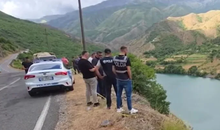
Murder of Reni Dobra, 23-year-old's vehicle pulled from the water
2025-07-10 14:29:23
Trump's tariffs on Brazil raise coffee prices
2025-07-10 14:16:07
Ursula von der Leyen survives no-confidence vote
2025-07-10 14:04:27

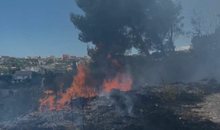
Fire in Lezha, flames near electrical substation
2025-07-10 13:32:24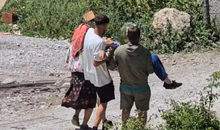
Residents clash with police in Theth, a woman faints
2025-07-10 13:24:38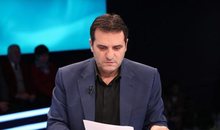
"Rama and Xanun"
2025-07-10 13:15:46

Zodiac signs most likely to get divorced in July 2025
2025-07-10 12:45:51
A scapegoat for an illegitimate Republic
2025-07-10 12:35:02
"He has devastated his own nation"/ Berisha: Rama imprisons his opponents!
2025-07-10 12:26:54

Albanian man injured with knife in Italy
2025-07-10 12:08:55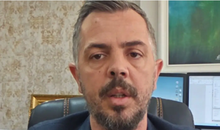
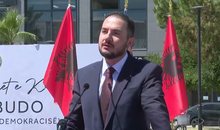




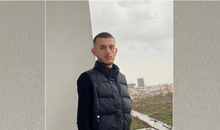
23-year-old in Mat drowned with rope, 4 suspects are being held
2025-07-10 10:58:53
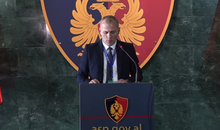
After the dismissals, the new director of the Shkodra Police is appointed
2025-07-10 10:30:10
BIRN: Rama's action for public spaces, a repeated spectacle
2025-07-10 10:29:11
Action in Theth, Shkodra Police leaders dismissed
2025-07-10 10:16:28
Fatal accident on the Tirana-Durres highway
2025-07-10 10:01:58
The incinerator does not exist, but the government continues to increase funds
2025-07-10 09:51:45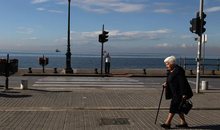
Albania is aging at a rapid pace! 30% of the population is over 60 years old
2025-07-10 09:46:23
End of an era, Modric says 'goodbye' to Real Madrid
2025-07-10 09:36:09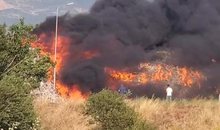
Mount Dukat has been on fire for 6 days, residents request air intervention
2025-07-10 09:27:24

"Poverty on the rise"/ DW: Many people in Germany are not getting paid
2025-07-10 09:08:06
Horoscope, what do the stars have in store for you today?
2025-07-10 08:51:59
